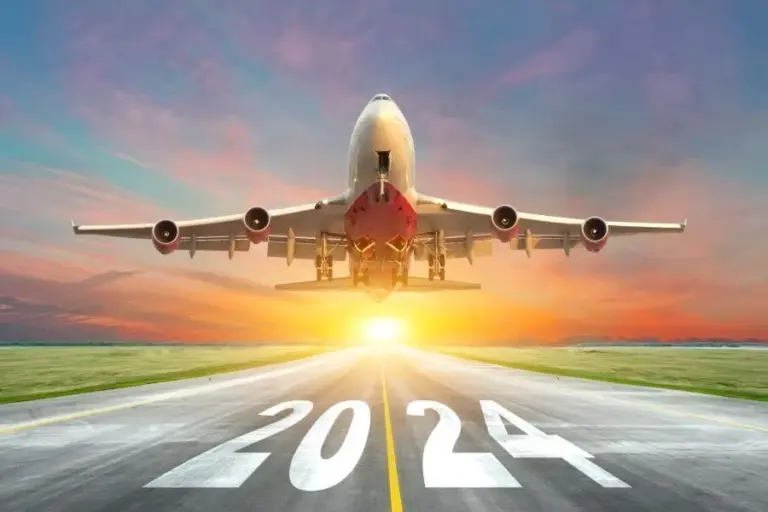Nigerian businesses spent a staggering ₦164.4 billion on travel in 2024, as rising airfares, hotel rates, and logistics pushed mobility costs to historic highs. This insight comes from Nairametrics’ analysis of the financial statements of 20 companies listed on the Nigerian Exchange (NGX).
But beyond the huge numbers lies a deeper tale of economic strain, FX volatility, and strategic repositioning by major firms.
Soaring Airfares and Foreign Exchange Woes
Travel costs soared primarily due to the escalating prices of both local and international flights. Airlines such as Air Peace and Ibom Air, along with global carriers, were forced to adjust fares upwards—driven by the naira’s depreciation, expensive jet fuel, and increasing operational expenses.
Domestic flight tickets rose by over 50% year-on-year, while international travel became even more costly due to unstable exchange rates and fuel dependency on foreign currency.
Macroeconomic Indicators Tell the Same Story
Data from the National Bureau of Statistics (NBS) showed transportation inflation hit 30.5% by December 2024. Meanwhile, the transportation sector posted a 6.53% GDP growth, underlining the volume and importance of corporate mobility.
Accommodation also became significantly pricier. In Lagos and Abuja, hotel room rates surged over 40%, as hotels battled higher costs from generator fuel, imported goods, and maintenance—all of which trickled down to guests.
Top Corporate Travellers
Among the highest spenders:
-
Access Corporation led the pack with ₦53.23 billion spent on business travel—an 89.77% jump from 2023.
-
UBA Group followed with ₦29.13 billion, more than double its prior year’s spend.
-
FirstHoldco recorded ₦26.07 billion, even surpassing its total administrative cost line of ₦20.72 billion.
-
Seplat Energy‘s expenditure climbed to ₦13.47 billion, a 162.06% increase, highlighting intense field operations and possible expansion.
-
Dangote Cement also saw a jump, spending ₦13.29 billion, a 71.89% rise tied to regional operations.
Sectoral Surge Across the Board
The increase wasn’t isolated to banking or oil and gas. Other notable spenders included:
-
Presco Oil PLC – ₦7.55 billion (+55.35%)
-
FCMB Group – ₦4.31 billion (+62.64%)
-
TotalEnergies Nigeria – ₦3.84 billion (+78.60%)
-
Julius Berger Nigeria – ₦3.76 billion (+45.17%)
-
Lafarge Africa – ₦2.39 billion (+123.36%)
-
Nestlé Nigeria – ₦1.75 billion (+20.69%)
-
BUA Foods – ₦1.70 billion (+47.83%)
These figures highlight widespread mobility spending across construction, energy, FMCG, and financial services.
Cost-Conscious Companies Buck the Trend
However, a few firms managed to trim travel costs:
-
BUA Cement – ₦574 million (-3.24%)
-
Dangote Sugar Refinery – ₦1.21 billion (-1.63%)
-
Honeywell Flour Mills – ₦137.5 million (-51.27%)
These reductions likely reflect cost-saving measures, remote work adoption, or reduced operational demands.
The Bigger Picture: Inflation, Strategy, and Adaptation
The ₦150 billion spike in corporate travel spending illustrates how inflation and macroeconomic instability are reshaping business dynamics. While the expenses may seem extravagant, they largely stem from unavoidable economic realities—weakened naira, costlier fuel, and high inflation.
At the same time, companies are ramping up cross-border engagements and resuming pre-pandemic levels of field operations. For many, it’s a return to growth-mode, particularly those with pan-African ambitions.
Looking Ahead: Will the Spending Trend Continue?
Unless Nigeria stabilises inflation and foreign exchange, travel costs are unlikely to drop significantly in 2025. Companies may need to explore cost-effective alternatives such as virtual meetings, hybrid events, and smarter logistics planning.
Still, for now, business travel remains a critical component of growth, networking, and expansion—despite the hefty price tag.

